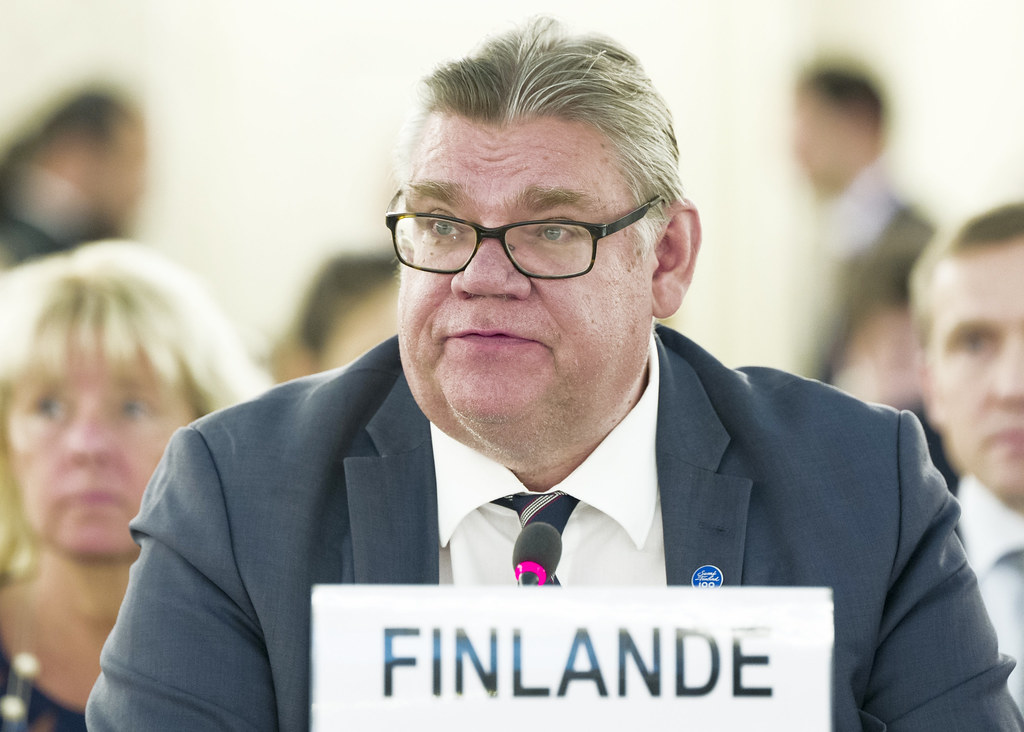Timo Soini is a Finnish man with an affable manner and fluent oratory skills. Over the years, he has been a leading figure in his country’s politics. He launched his political career as a teenager in the late 1970s in the Finnish Rural Party where he climbed to top positions. In the mid-1990s he departed to form a new party, the True Finns. While at the helm of this conservative party, he achieved double-digit election results and held positions in the Finnish government. He was deputy prime minister and foreign minister until 2019, when he left parliamentary political activity.
Today, he is a conservative intellectual and a proud Finnish patriot. But he is also a proud non-conformist, like the roaring lion symbol of Millwall, the football team from the extreme London suburbs that Soini supports. His non-conformism is reflected in his religious faith, given that the former deputy prime minister belongs to the country’s sparse Catholic community (about 10,000 people among a mainly Lutheran population of 5.5 million). He gave an interview for iFamNews on the occasion of the release of his autobiography.
How can you be Catholic and, at the same time, a “true Finn”?
Finland has a good tradition of tolerance towards the Orthodox Church, and the same goes for Catholics. Especially after the “Polish revolution” (Solidarność), Pope Saint John Paul II (1920–2005) was widely appreciated by the population. And after all, the True Finns are a political movement founded by a “little man”… so this also fits well with Christianity.
The electoral success of your party in recent years is proof that the Finnish people have no problem with the religious faith you profess.
No, my Catholic faith has rarely been tested during my political experience. There was, though, one exception in 2018. In parliament, the opposition tabled a no-confidence motion against me when I was foreign minister because of my anti-abortion positions, which I refused to disavow. I won, and the motion was denied.
How did your conversion to Catholicism come about?
It was twofold. In 1988, the Lutheran Church accepted the female priesthood, which I found seriously wrong. And then my personal views on the Eucharist coincided with those of the Catholic Church, whose doctrine on the subject is clear and reasonable.
Was it a path linked only to these two doctrinal aspects?
My journey of conversion began in 1987 during an Interrail trip to Ireland. It was at St. Mary’s Cathedral in Killarney where I had conversations with a Catholic nun that were very important for me. Faith is something to be found, not invented.
Finland is one of the European countries where conscientious objection to abortion is not allowed. Is it impossible to introduce this right for health personnel?
It’s terrible. There was a parliamentary initiative on this issue in 2015. But we lost.
The Nordic countries are considered bastions of secularization and ultra-progressivism. Is anything changing in Finland in recent years?
We are sliding in the wrong direction. True faith is fading, but not as quickly as in other Nordic countries. The situation is difficult, but not hopeless.
How do you see Europe’s post-pandemic future? Are you confident or not?
We are printing money and creating joint debt, which I find absolutely wrong. I’m very worried.
Apart from this financial aspect, are you concerned about the galloping secularization?
Europe is pagan again, more or less. This is a disaster. People are creating their own “religions”. A little bit of kabbala, some yoga, a few “angels”, some tree hugging and whatnot. “Climate” is the new golden calf. Political parties and many priests do not promote or defend Christian values. I’m really worried about that, too.
Are you also concerned about immigration?
Depends where it comes from. Filipino nurses are a great blessing to Finland, but mass immigration is a problem.
Lastly, a semi-serious question: is it more “wacky” to be a Finnish Millwall fan or to be a Finnish Catholic?
Both are considered strange. I’m both, but in many elections I’ve come in the top three, twice number one, so it doesn’t matter. Being an honest person is what earns you respect.
